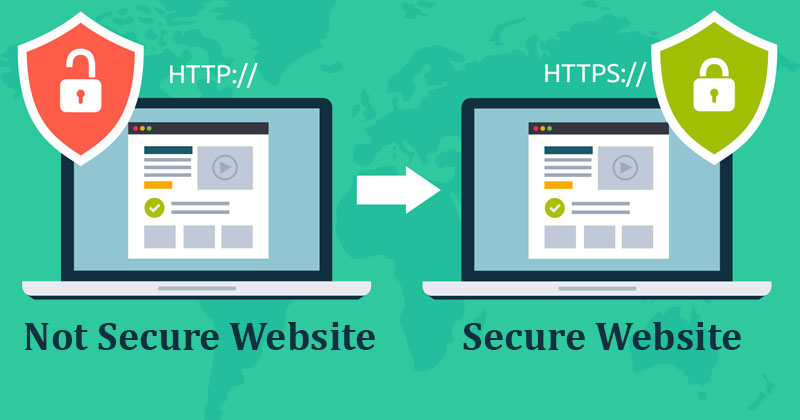
Wondering why Chrome will now mark all non-HTTP sites as “not secure”? Own a smart website URL and stay away from such worries
Do you own a small or medium sized business which has a dedicated website for customers? Are you using SSL certificate to secure website with https enabled URL for your business website? If not, be prepared to get a notice from Google about marking your website as a “Not secure” one. Google has taken the step of announcing unencrypted sites as unsafe or not secure to fulfill its two years old promise. The earlier versions of Chrome also includes some of the similar features to corner the unencrypted websites. In 2016, Google launched Chrome 56 to mark websites with a password requirement as a ‘not secure’ one. Later on, Google came up with Chrome 62 which allows the opening of HTTP sites on the Incognito window only.
This year Google has released Chrome 68 which helps to differentiate between safe and malicious websites. Google users can now check the authenticity of any website by looking for the “not secure” sign in the site. It will help to minimize the alarming number of fraudulent activities occurring over the internet by restricting the use of unencrypted websites. You are advised to secure website with https in case it is not and gift a safe browsing experience to your website visitors.
HTTP vs HTTPS: Which one to choose?
The term HTTPS is nothing but an extension of the word HTTP which means Hypertext transfer protocol. The letter “s” at the end of the word adds a security factor to the original word. HTTP manages the exchange of information between websites and their host servers. It formats the input command messages and transfers that information to the host servers to create the final output.
There is no harm in continuing with an HTTP website URL until you are providing authentic information over the website. If your website includes a payment gateway which requires private information from the customers, you might need the secure website with https enabled URL. Because HTTP website URL might carry malicious objects within it which might hack the credentials of your customers. So, to be on the safer side and to offer ultimate security for browsing, secure website with https is the best option.
Brilliant techniques to convert your HTTP URL into an HTTPS one:
Ever thought about how to make your website secure? It is not a complex task. By installing an authentic security certificate in a proper way, you can maximize the security of your website’s URL. Go through the steps mentioned below to Install Https on the website of your business.
- Develop a valid and unique IP address for your website
- Buy an SSL or secure socket layer certificate
- Open your web hosting panel and develop a CSR for your website to activate the SSL certificate
- Submit the certificate to the concerned authority
- Enter the necessary information on the web hosting panel and install the SSL certificate
- The panel will show your exclusive domain name and offer your with a valid certificate for your company
- Visit the HTTPS link of your website and you can check that your site is available there with the ‘s’ mark
You can apply the above-mentioned steps on your own or get it done by a web hosting company. Get it done as soon as possible and allow your website visitors to navigate through your site without any worry.
Why Installing HTTPS on the website is important?
Cyber crimes are increasing day by day. Various cyber threats are crawling through the web and hacking the private information of internet users. These malicious objects and hackers are targeting the sources such as email links, websites with payment gateways, mail attachments, etc., to invade the systems of internet users and hack their credentials. Some of the most common threats are botnets, hacking, malware, phishing, spam, ransomware, phishing, etc. To protect the information of the internet users from such malicious activities, Google has taken this strict decision of marking non HTTPS URLs as unsafe. As a business owner, it is your responsibility to welcome this smart decision of Google and Secure website with HTTPS.
Allow our experts to gift your customers with a secure navigation:
Our experts at Tech Support Dubai understand the importance of the safety of your data. We can guide you in the best ways by offering security to the credentials of your customers. Our professionals at Tech Support Dubai will offer you thorough guidance to solve your query of how to secure your website through HTTPS. Get in touch with our experts by dialing our helpline number 045864033 . We will guide you to make your website URL secure with the proper installation of HTTPS.
